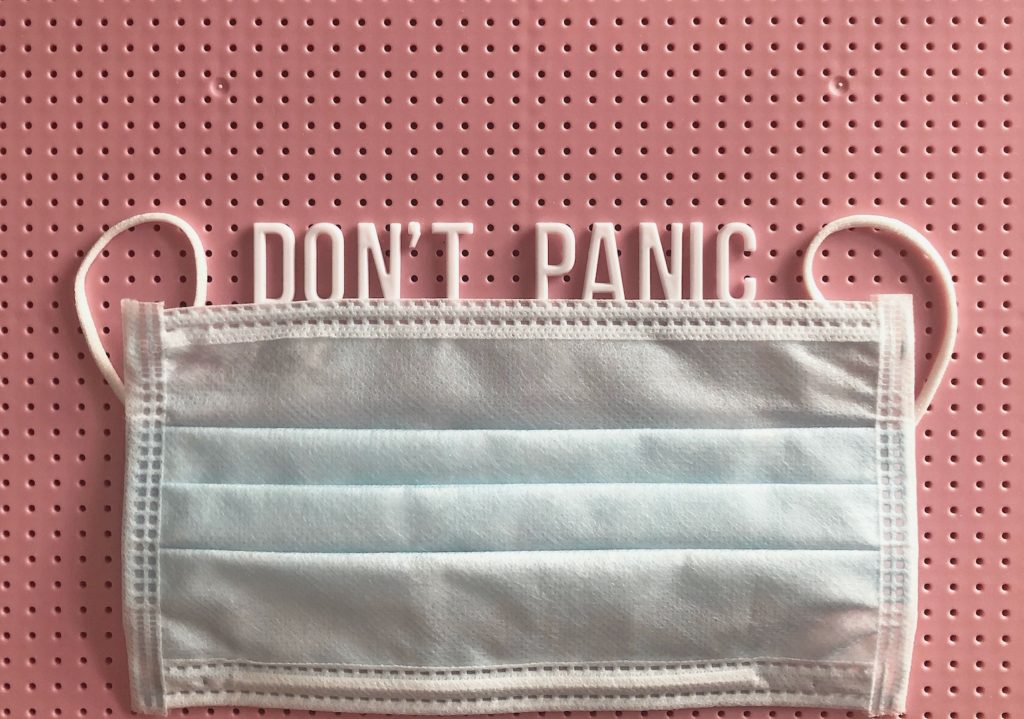4 Min Read
Mental Health and Coronavirus: How to Cope During COVID-19
The outbreak of infectious diseases, like the current coronavirus (COVID-19) global health pandemic, can be a tremendous additional stress on people and communities. Fear, anxiety, and paranoia toward the coronavirus outbreak in the United States can be overwhelming and even detrimentally affect the mental health of adults, adolescents, and children.

According to the CDC website, common reactions during an epidemic include:
- Fear and anxiety toward your physical health and the health of family members who may have been exposed to the coronavirus infection
- Changes in sleeping and eating patterns
- Difficulty sleeping and fatigue
- Worsening of chronic health conditions, including mental health problems such as bipolar disorder, depressive disorders, anxiety disorders, and schizophrenia, as well as physical health conditions such as respiratory disease and heart disease
- Increased use of alcohol, tobacco, and other drugs.
It’s common to feel vulnerable when faced with news about the virus spread, mortality rate, and coronavirus cases. Individuals who may respond more strongly to the stress of the coronavirus outbreak include:
- People who have preexisting mental health conditions, including post-traumatic stress disorder (PTSD), anxiety disorders (such as Generalized Anxiety Disorder), and substance use disorder
- Children and adolescents because they may not understand what they are hearing in the news, are experiencing loss of social interactions, and are likely noticing more anxiety and tension in family members
- Older people and people with a chronic physical health condition, disability, or severe illness that makes them more vulnerable to the transmission of the coronavirus
- Doctors, healthcare providers, public health officials, and clinicians working in clinics and helping with the response to the COVID-19 infection
- People residing in a community under a state of emergency or with confirmed cases of the novel coronavirus.

Find a Therapist to Cope During COVID-19
Get personalized matchesHow can you stay informed about the coronavirus outbreak?
Rumors and speculation about the new coronavirus fuel fear and paranoia. Staying informed with reliable information about the current number of cases in the U.S., rate of community spread, and how to identify the influenza-like symptoms can help you feel in control and share accurate information with others.
You can find the latest information, announcements, situation reports, and further details on the coronavirus disease through reputable sources such as:
- Center for Disease Control (CDC)
- World Health Organization (WHO)
- U.S. State Department
- Food and Drug Administration (FDA)
- U.S. Department of Homeland Security
- U.S. Health and Human Services Department
- Public health authorities and local health departments
During the outbreak, it’s essential to keep in mind that COVID-19 can make anyone sick. Avoid judging people and don’t assume who is responsible for the disease spread. The coronavirus can affect everyone regardless of gender, sex, age, nationality, race and ethnicity.
What can you do to support yourself?
Many people can experience mental health symptoms like depression and anxiety when faced with social isolation. Staying connected to your support system can be helpful during times of stress. Stay connected with family members and your community, or consider contacting a helpline or therapist for mental health support. Many therapists are providing online therapy for those who are in self-quarantine.
In addition to staying connected, you can support yourself by:
- Avoiding excessive exposure to media coverage about the spread of the virus. With news outlets like New York Times, Washington Post, and CNBC posting regular situation reports and announcements on coronavirus and the number of people affected, managing how you follow the outbreak on news and social media can help you avoid feeling overwhelmed. Although staying informed is important, don’t be afraid to limit your news intake if it’s damaging to your mental health.
- Taking care of your body and mind. Aim to eat well-balanced meals, exercise regularly, get enough sleep, and avoid alcohol and drugs.
- Setting aside time to relax and remind yourself that, like the SARS outbreak, COVID-19 will pass. Take breaks from checking the latest situation reports—instead of keeping up with the latest information about new COVID-19 cases, try to do some activities you enjoy.
- Put your energy into a project or hobby which will offer positive distraction and help regain a sense of control
Practicing hygiene and social distancing precautions can also help minimize the spread of the coronavirus and provide peace of mind:
- Wash hands more often. If you can’t wash your hands right away, use hand sanitizer.
- Cover your mouth and use tissues when you sneeze or cough.
- Avoid touching your mouth, nose, and eyes with unwashed hands.
- Stay home if you feel unwell, even if you’re only suffering from mild symptoms or the common cold.
- Avoid public spaces and groups of people over 10.
- Maintain a 6 foot distance from other people (aside from close family members who live with you) if you have been advised to practice social distancing
Seek medical attention if you display flu-like symptoms, such as shortness of breath, runny nose, and sore throat—regardless of their severity—and if you have been in close contact with a person known to have COVID-19 or have recently traveled from an area with a COVID-19 outbreak. Call in advance before seeking medical care, and tell your doctor about your recent travel and flu-like symptoms.
What are quarantine and social distancing?
- Quarantine reduces new cases by separating the movement of people with a history of travel or exposure to the coronavirus to an infectious disease from the general public to prevent human transmission.
- Social distancing involves home isolation and avoiding public spaces and close contact with others.
If you’re experiencing flu-like or respiratory symptoms, your healthcare provider may ask you to take preventive measures, such as self-quarantine, to protect public health. During self-quarantine, staying connected with friends and family members on social media and creating a daily routine that prioritizes self-care and nourishment can help you protect your mental health.
What should you do if you have a preexisting mental health condition?
It is normal to feel a regression in your mental health in times of stress. If you have a preexisting mental health condition it is important to prioritize self-care during the coronavirus outbreak. Individuals with preexisting psychiatric illnesses should continue their specific treatment plans during the COVID-19 outbreak and monitor for new mental health symptoms.
If you’re experiencing constant, intense feelings of stress and anxiety or new or worsening depression that interfere with your daily life, contact your mental health provider. Additionally, if you experience new or worsening suicidal thoughts please call 911, or contact the national suicide hotline.
To find a mental health provider, consider using With Therapy’s unique matchmaking tool. In addition to particular areas of expertise, With Therapy can help you find a mental health provider who matches your preferred gender, race, sexual orientation, education, background, or other desired criteria.
Stress and anxiety related to the COVID-19 epidemic are understandable. Although reaching out for help can feel daunting, an experienced therapist can help support you and provide tools for managing this stressful situation.
Find a Therapist to Cope During COVID-19




